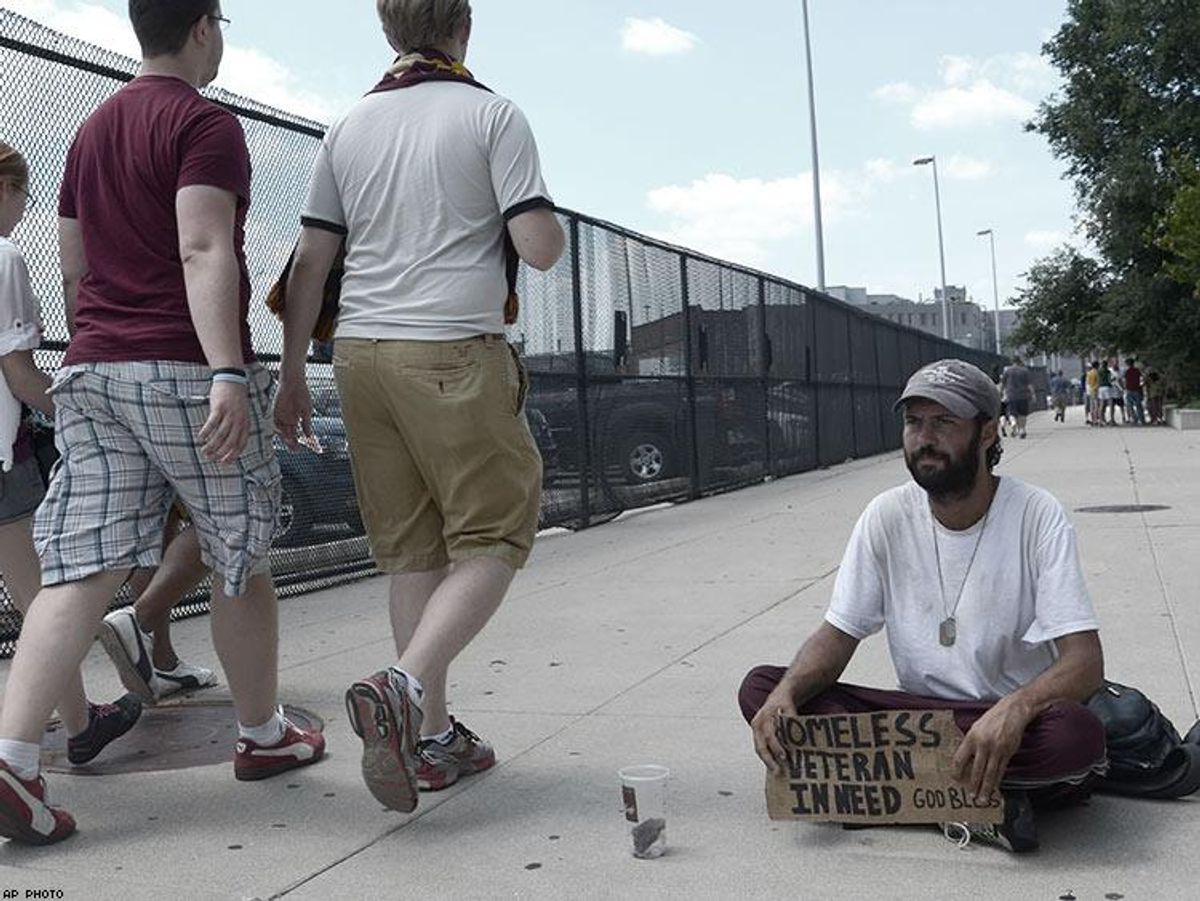Here's a shocking statistic: 45.8 percent of veterans in southern California screen positive for post-traumatic disorder. Imagine, then, how an LGBT servicemember must feel after enduring a "hyper masculine" environment, often fueled by alcohol, and the near-constant fear of being outed while on active duty.
Michael (not his actual name) is a former Military Police Corps officer and paratrooper who served at Fort Bragg, N.C., the destination for the elite Army Rangers and Special Forces. According to Michael:
"Being that I graduated from airborne school, and being surrounded by hyper masculine men and never feeling I could compare to them, ever, it was a nightmare. A lot of gay men share that experience, because we just feel different than [straight servicemen]. I felt isolated. I would go into my barracks room, which I didn't share with anyone, and just sit with myself, after duty. It was a very lonely time for me."
The ready availability of alcohol within the military worsens this crisis because it makes it all too easy for a problem drinker to escalate into chronic alcoholism or, in Michael's case, venture off post to find friends with a similar dependency for cocaine.
"My anxiety about being gay in the military, and being found out, became so bad that I remember drinking wine at breakfast to calm my nerves before showing up for duty," Michael says.
It is this very fear that can make the repeal of "don't ask, don't tell" a triumph in name only.
On top of all the machismo, transgender status and related medical diagnoses will automatically prevent an applicant from joining the service and, for actively serving military personnel, are cause for dismissal. The Army even lists gender identity disorder alongside voyeurism, exhibitionism, paraphilia, and even factitious disorders as a "disorder of impulse control" that warrants an administrative discharge.
For an LGBT service member battling addiction, this fear of job loss or social exclusion is a strong barrier to seeking treatment, requesting help, or speaking privately with a commanding officer. This situation makes returning to private life extremely difficult, to say the least.
"You're no longer under any supervision," Michael says. "So, for someone who enters the military right out of high school, you have no sense about the right to live your own life. I still needed someone to tell me when to suit up and show up because I never learned how to do those things for myself."
This disclosure comes with several alarming statistics, which, when paired with my conversations with Michael, reveal how difficult the transition is from military activity to civilian life. For example, in Los Angeles alone, 36.8 percent of post-9/11 veterans have had suicidal thoughts, and need psychiatric help. Michael's experiences are not an aberration; they are, sadly, the norm for a great many LGBT soldiers, sailors, Marines, and pilots. Their stories must not go unnoticed because veterans have an opportunity to help shape the largest VA campus in the nation.
The West L.A. VA campus is, thankfully, working to evolve and update its treatment policies, and many are using the hashtag #VATheRightWay to suggest specific changes.
LGBT veterans, particularly those battling addiction, must join this conversation, or have their friends and family do so on their behalf. Awareness of this plight is the first step toward honoring the brave and selfless sacrifices of these veterans. If #VATheRightWay achieves its goals, and if this expansion embraces LGBT veterans with respect and dignity, then we can help turn the tide of veteran addiction -- for every American, gay or straight. That is a victory La Fuente Hollywood Treatment Center will cheer.
 MANNY RODRIGUEZ is the executive director of La Fuente Hollywood Treatment Center.
MANNY RODRIGUEZ is the executive director of La Fuente Hollywood Treatment Center.
































 MANNY RODRIGUEZ is the executive director of
MANNY RODRIGUEZ is the executive director of 

















































